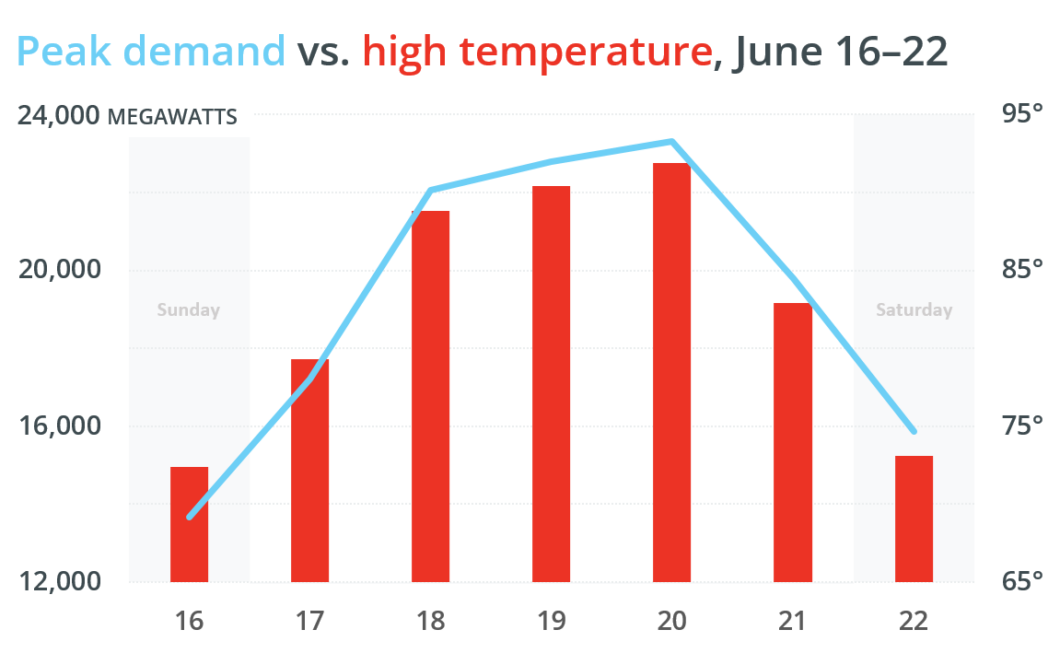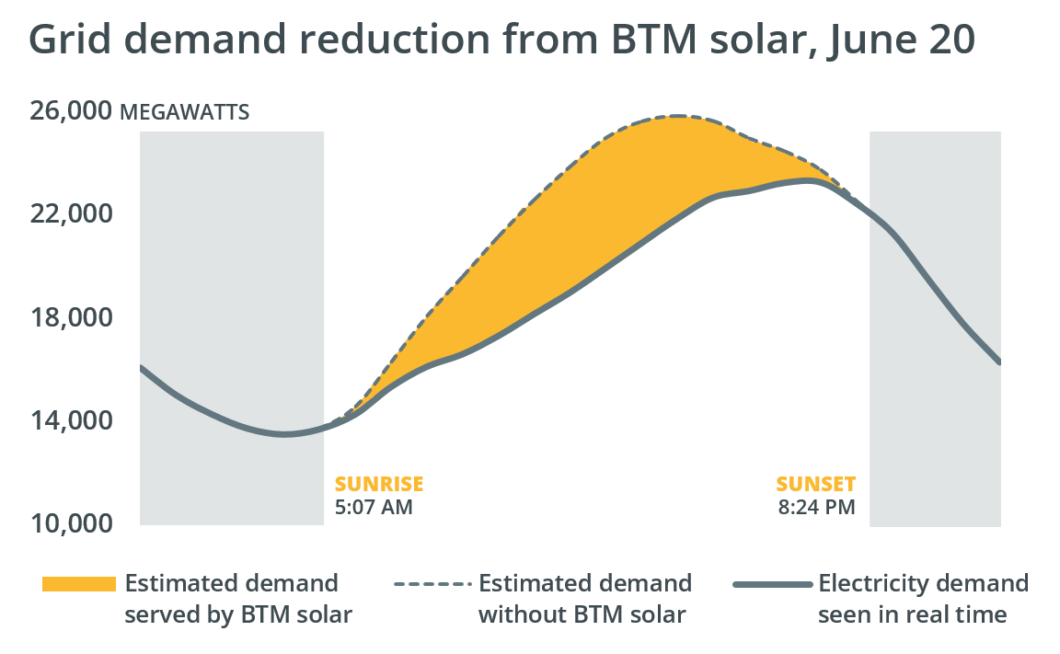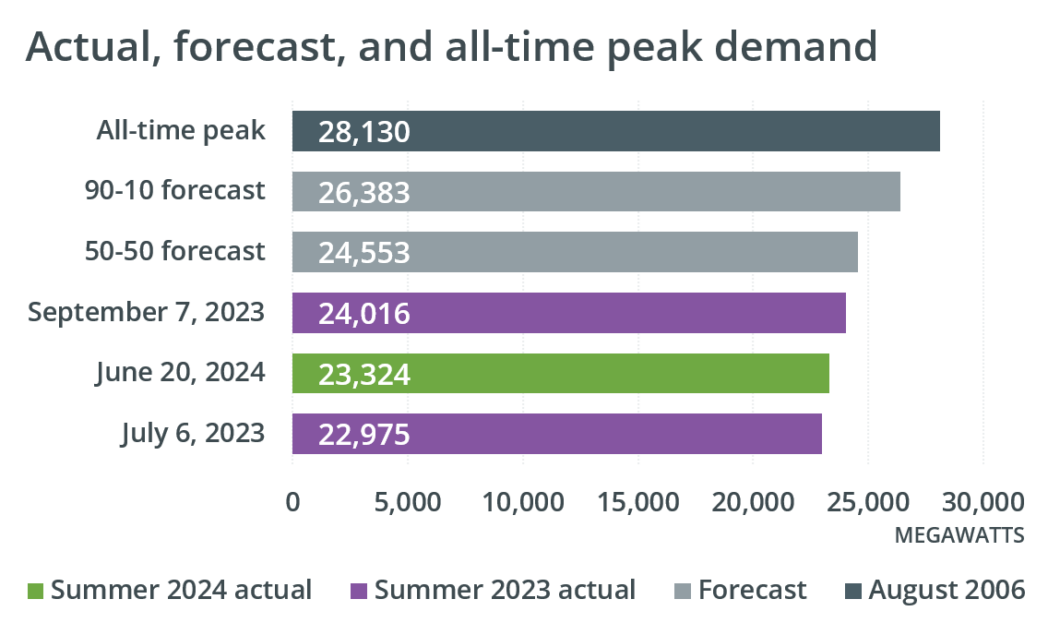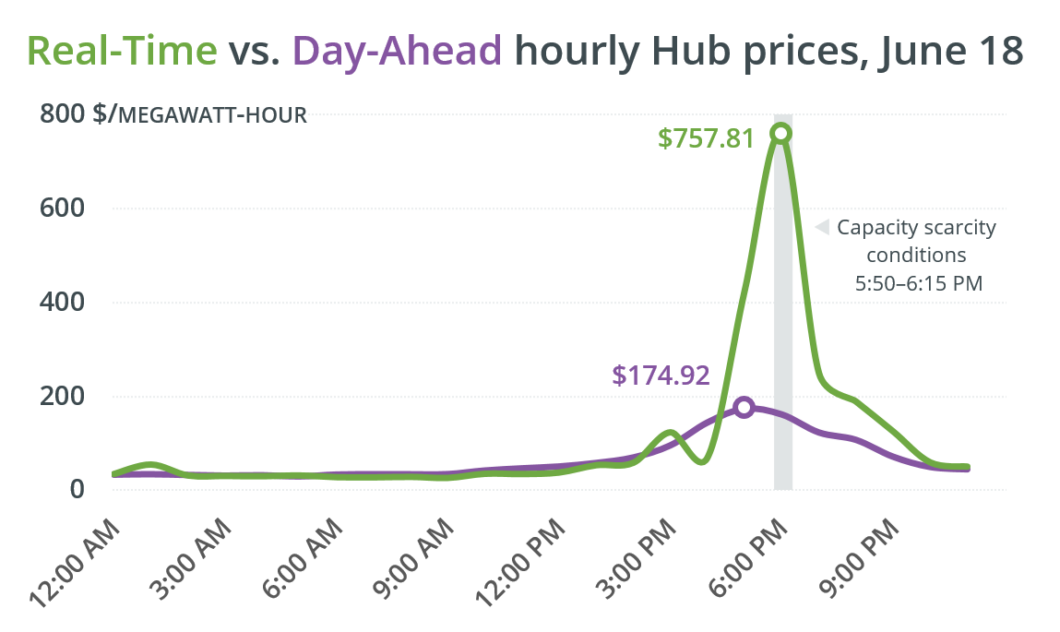New England’s power grid remained reliable during June heat wave
New England’s power system operated reliably during the first heatwave of 2024, when temperatures across the region were above average for five straight days.
Consumer demand peaked at 23,324 megawatts (MW) on June 20, in line with the day’s forecast and marking the highest demand so far this year. This peak was within the expected range forecasted for the summer.
Weather and consumer demand
New England currently sees its highest demand for electricity during hot, humid weather, as residents and businesses utilize air conditioning to keep cool.
Temperatures in the region averaged more than 8° Fahrenheit (F) higher than normal during the five-day heat wave.
Demand peaked at 23,324 MW between 6 and 7 p.m. on June 20, when average temperatures in the region were 92°F, almost 14 degrees higher than normal.

Behind-the-meter (BTM) solar tempered mid-day demand for grid electricity throughout the heat wave. On June 20, BTM solar contributed approximately 5,106 MW of power at noon, and 156 MW during the peak hour. Without contributions from BTM solar, demand for grid energy would have been higher.

Solar production peaks in the early afternoon, several hours earlier than system demand. This means other resources must ramp up as solar production wanes in the late afternoon and early evening, to supply the electricity needed to meet the system peak.
New England’s all-time peak demand was 28,130 MW, recorded during an August 2006 heat wave.

Power Caution follows generation outages, reductions
The ISO declared a Power Caution on June 18 after unexpected generation outages and reductions led to an operating reserve shortfall. In total, approximately 1,600 MW of generation that was expected to be online was unavailable. Additionally, net imports were approximately 100 MW below expected levels entering the day, and consumer demand was approximately 200 MW above forecast.
The timing of the outages prevented additional resources from coming online in time for the evening peak.
Declaring the Power Caution allowed operators to use reserve resources to maintain system balance, which ensured reliable system operations throughout the capacity scarcity event. Although the scarcity event was resolved within approximately thirty minutes, the region remained in a Power Caution for approximately four hours to give system operators flexibility.
Prices in the Real-Time Energy Market averaged approximately $108.50 per megawatt-hour (MWh) over the course of the day on June 18, with averages reaching more than $750/MWh during the peak hour.
Though high, these prices are unlikely to affect most consumers given how retail rates are set in the region. Though practices vary by state and utility coverage area, the rates paid by most retail customers are set for months-long periods and are not subject to volatility within the wholesale marketplace.
Almost all of New England’s wholesale electricity is bought and sold in the Day-Ahead Energy Market, where prices were unaffected by the capacity deficiency. Average day-ahead prices during the peak hour were roughly $162/MWh.

The capacity scarcity conditions triggered the region’s Pay-for-Performance rules, which penalize resources who fail to meet their capacity supply obligations in real-time, while rewarding the resources who exceed theirs. Preliminary estimates show penalties for underperforming resources will be roughly $14.8 million.
An Abnormal Conditions Alert was also issued on June 18, and remained in effect until June 20, due to the hot weather, but ISO system operators did not need to take any additional actions to balance the system following the Power Caution.
Summer operations
ISO New England will continue to monitor conditions throughout the summer. While the ISO expects the region to have adequate supplies of electricity this summer, abnormal conditions could force system operators to take action to maintain system reliability.
Visit ISO Express for the most up-to-date information on the region’s power grid, or download the mobile app, ISO to Go.
- Categories
- Inside ISO New England
- Tags
- summer, system operations, wholesale prices
